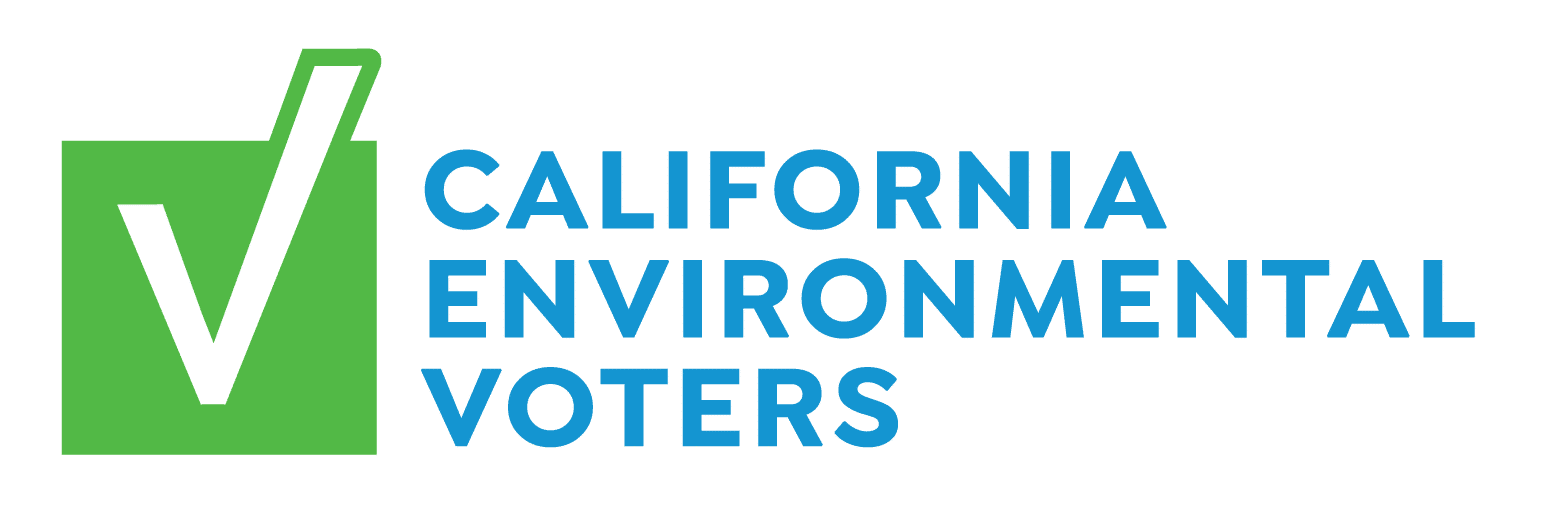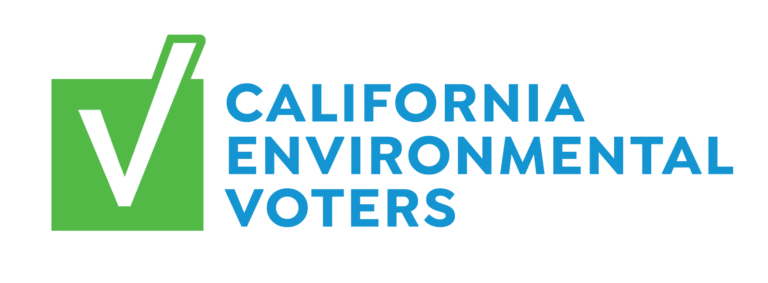2024: California's Big Call to Action
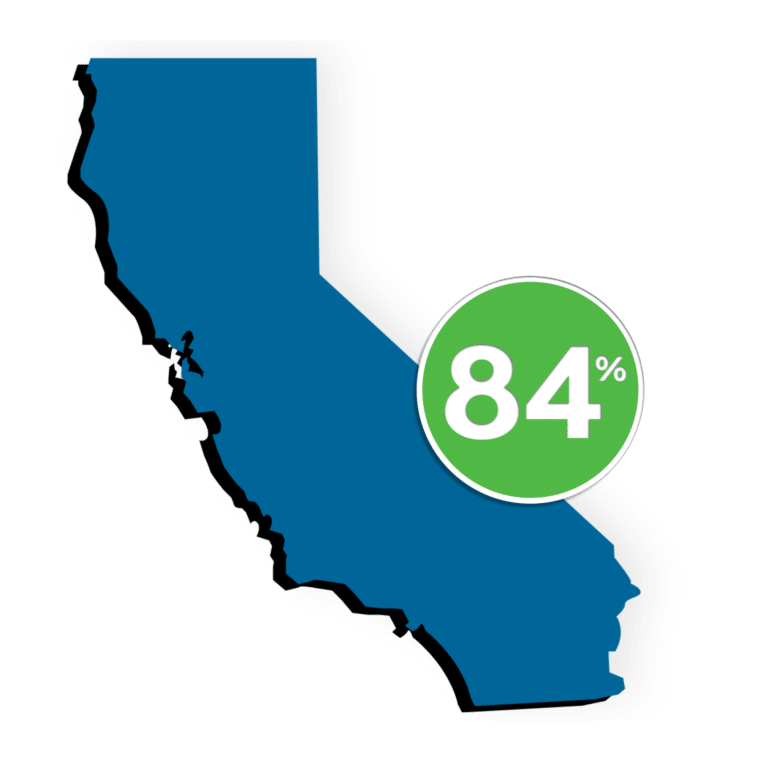
2022 Score
2023 Score
2024 Score
California earns B grade
California began 2025 with devastating, but preventable wildfires. The government must implement bold, climate policies, invest in community protection, and hold polluters accountable for the destruction they cause.
Under the Trump administration, California has a massive call to action this year. Our California leaders must defend against federal attacks while advancing climate progress to advance our collective impact. It will take partnership, agency, and shared vision from California leadership to make big breakthroughs.
2022 Score
2023 Score
2024 Score
Bright Spots in 2024:
Bright Spots in 2024:
Proposition 4 Passes
The California legislature placed a historic $10 billion climate bond on the ballot (Proposition 4) that was approved by 60% of voters. This significant financial commitment creates critical investment in water conservation, clean energy, wildfire resilience, and community protection.
Strong Climate Bills
California is holding polluters accountable with legislation like AB 1866, AB 2716, AB 3233, and SB 1221.
Taking Big Oil to Court
California set a precedent by suing Exxon for misleading claims about plastic recyclability, raising corporate accountability in the fossil fuel sector. The California Energy Commission (CEC) adopted a new energy code to boost efficiency and electrification, while CalPERS’ vote against Exxon board members highlighted the risks of fossil fuel investments to California’s climate goals.
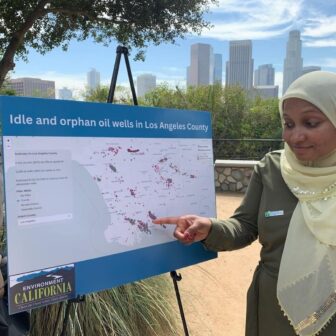
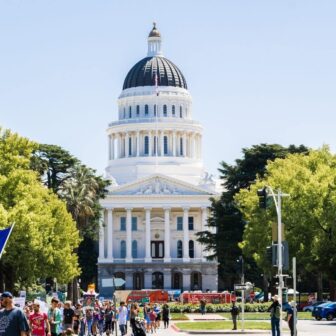




Key Legislative Wins
- AB 1866 (Hart): Incentivizes companies to plug significant portions of their idle oil wells every year.
- AB 2716 (Bryan): Requires wells located in the Inglewood oil field to be plugged and abandoned.
- AB 2875 (Friedman): Codifies the 1993 Executive Order that ensures no net loss of wetlands.
- AB 3233 (Addis): Safeguards local governments’ authority to regulate and phase out oil operations in their jurisdictions.
- SB 1221 (Min): Creates a new program that electrifies neighborhoods to save ratepayers money and reduce emissions.
There were key anti-environmental actions in 2024 too:
There were key anti-environmental actions in 2024 too:
Cuts to the State Budget
California’s climate disasters highlight the urgent need for investment in sustainable solutions and resilient infrastructure. The legislature’s $5 billion cut to the climate budget in 2024 weakened the state’s ability to address pollution, extreme weather, and wildfires. By failing to eliminate corporate handouts and subsidies (Water’s Edge) and invest in climate solutions (SB 253), the state undercuts its efforts to reduce emissions and protect communities from climate disaster.
Failed Climate Bills
California left key climate and environmental justice bills on the table this year. The Governor vetoed bills on gas stove warning labels (AB 2513), electric vehicle battery recycling (SB 615), fenceline monitoring (SB 674), and referendum funding transparency (SB 1337). Additionally, the California Green Amendment (ACA 16), the Local Electrification Planning Act (AB 1176), ending avoided methane crediting (AB 2870), oil company liability (AB 3155), carbon offsets (SB 1036), prohibiting utilities from using ratepayer dollars for lobbying (SB 938), and polluters pay (SB 1497) failed to make it to his desk.
Weaker Regulations
The state’s Low Carbon Fuel Standard (LCFS) fails to incentivize a rapid transition to zero-emission transportation. The state missed a crucial opportunity here to phase out reliance on dirty fuels from one of its largest polluting sectors. Urgently needed laws also faced administrative delays, including SB 1137, which creates no-drilling health protection zones, AB 1167, which makes oil companies clean up idle wells, and the first regulations on carbon capture and storage technology.
In 2025, California's lawmakers need to focus on:
- Global Leadership: Build upon past successes, including advocating for the UN’s adoption of 30×30 goals, and position California as the climate voice for the U.S. on the international stage.
- Defensive Litigation: Create a strong litigation plan to hold the Trump Administration accountable for violating or neglecting environmental laws and support defense around landmark legislative victories, like the Corporate Climate Accountability Act, and passing state bills that codify our own environmental protections around endangered species, drilling, water, and more.
- State Action: Drive state-level climate action by holding polluters accountable, making energy and insurance affordable, advancing clean energy, protecting biodiversity, and ensuring clean air, water, and resilient infrastructure.
How did we determine California's score?
To calculate the California score, we tracked the outcome of 129 total environmental bills introduced in 2024, 10 major pro-environment actions, and two major anti-environmental actions the state took.
| California’s 2024 Environmental Actions |
|---|
| 64 out of the 129 bills that were introduced became law and the 5-year climate budget was cut by $5 billion. |
| California’s Legislature placed a historic $10 Billion climate bond on the ballot (Prop 4) and California voters overwhelmingly supported Prop 4 with 60% yes votes. |
| California’s participation in the United Nations Biodiversity Summit: Known as the 16th Conference of the Parties to the United Nations Convention on Biological Diversity (COP 16). California is an official observer to the conference as a subnational government. |
| California’s lawsuit against Exxon for lying about plastic being recyclable. |
| The California Energy Commission approved new building energy code which will likely result in the vast majority of new homes built in California being all-electric. |
| Governor vetoing bills that would have delayed critical clean air rules including the Advanced Clean Fleets rule to reduce emissions from trucks, and the Commercial Harbor Craft rule to reduce emissions from ships and boats. |
| The passage of Senate Joint Resolution 16 & 17, which called on the federal government to establish four new national monuments: Chuckwalla, Joshua Tree, Kw’tsán, Sáttítla Highlands. |
| SB 253 not being delayed further. |
| The removal of 2 problematic ballot initiatives, oil setbacks referendum & business roundtable initiative. |
| The expansion of two national monuments Berryessa and San Gabriel and designation of two new national monuments Chuckwalla and Sáttítla Highlands. |
| Progress on 30×30 goal |
| CARB Vote to Update the Low Carbon Fuel Standard (LCFS): CARB had the chance to fix the LCFS to protect communities health and they did not deliver. |
| Agency Delays and Underfunding: There were significant delays in implementing climate policies at the agency level, with some laws like AB 1167 facing issues at CalGEM and others like regulations for carbon capture and storage at CARB, without which this technology goes unregulated. The Governor also proposed further delays to the oil setbacks law and to the climate corporate accountability act, both of which saw some delays after negotiations. |
